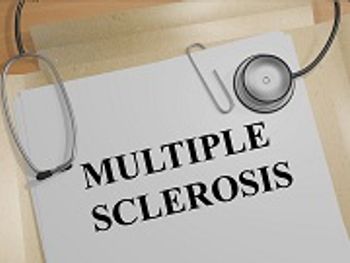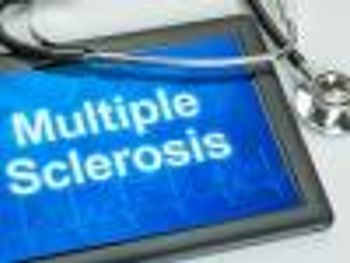
Dimethylfumarate could provide a new treatment option for several neurodegenerative diseases.

Dimethylfumarate could provide a new treatment option for several neurodegenerative diseases.

Ocrevus treats relapsing and primary progressive multiple sclerosis.

While cancer spending contributes largely to medical spending, it only accounted for 6.3% of growth from 2000 to 2012.

Ocrevus is an investigational, humanized monoclonal antibody that selectively targets CD20-positive B cells in multiple sclerosis.

Findings will allow for improved screenings of drugs that treat MS.

Intensive stem cell transplant cleared all signs of brain inflammation in multiple sclerosis patients.

Gut bacteria found to influence the activity of cells in the brain that control inflammation and neurodegeneration.

Study finds social media content can be analyzed for use in MS outcomes research.

Patients with mutations in the gene NR1H3 have a 70% chance of developing a progressive form of MS.

Daclizumab (Zinbryta) treats adults with relapsing forms of multiple sclerosis.

Zinbryta is a long-acting injection that is self-administered by the patient every month.

The FDA has approved daclizumab (Zinbryta) as a treatment for adults with relapsing forms of multiple sclerosis.

Conditions such as multiple sclerosis, epilepsy and Parkinson’s disease may cause sexual dysfunction.

Fingolimod (Gilenya) has shown inconsistent improvements with disability in multiple sclerosis.

Various benefits associated with fingolimod (Gilenya) observed for relapsing-remitted multiple sclerosis.

Genetic variant in the chromosome 5q11 affects development of multiple sclerosis.

Fasting-like diet shows promise treating autoimmune diseases in small study.

Specific venoms may lead to targeted therapies for conditions such as multiple sclerosis, rheumatoid arthritis, and other inflammatory disorders.

Andrographis paniculata plant reduces fatigue in patients with relapsing-remitting multiple sclerosis.

Yoga and aquatic exercise seen to decrease fatigue, depression, and paresthesia in MS patients.

Study may lead to the development of treatments for disorders with damaged myelin sheath.

Increased gut bacteria linked to inflammation among children with multiple sclerosis.

Patients taking mitoxantrone for multiple sclerosis found to have higher rates of breast and colorectal cancers and leukemia.

Patients administered mitoxantrone for multiple sclerosis carry higher rates of breast and colorectal cancers and leukemia.

Drug produced by medicinal plant Oldenlandia affinis may block the progression of multiple sclerosis.